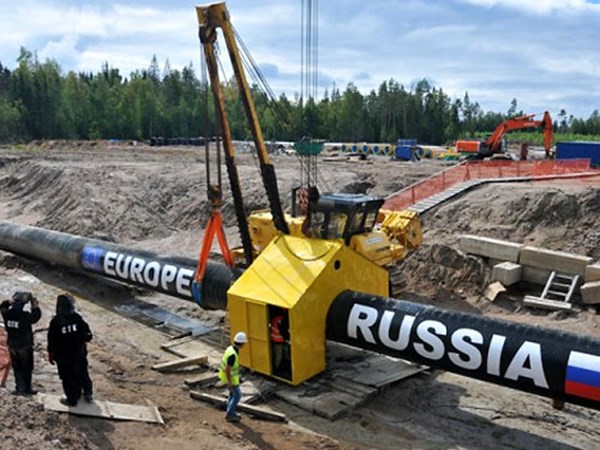Media: Germany and Russia continue Nord Stream 2 project despite protests by Ukraine
The gas pipeline project, Nord Stream-2, is gradually being implemented, despite protests by Ukraine, the Baltic countries and Poland, Sueddeutsche Zeitung reported.
“The pipes that were ordered have been delivered and the tender request for the pipe laying has been made. This has all been done with the approval of the German government and despite the sanctions against Russia,” Radio Poland quoted the German newspaper as saying.
According to the newspaper, intensive preparations for the implementation of the project are continuing in Germany. The search for the best location for the pipeline also continues in the vicinity of the town of Greifswald. Gascade, a subsidiary company of Russia’s Gazprom, and the German company of Wintershall are conducting intensive preparations to begin construction. The new gas pipeline will connect Greifswald, which is located on Germany’s eastern border, with the Czech Republic.
“This is purely an economic project for us. Therefore, Nord Stream-2 should be evaluated from an economic point of view,” Sueddeutsche Zeitung quoted the German Minister of Economy, Sigmar Gabriel, as saying.
The newspaper also said that Gabriel has invested “big political capital” into this project and mentioned the politician’s visit to Moscow last year. It was there that Gabriel spoke about the partial lifting of sanctions for the first time. He also suggested that the two countries should resolve the issues related to energy supply between each other and avoid “political interference” from the outside.
The newspaper noted that the so-called Third Energy Package of the European Union provides for the separation of gas sales from the supplier, as well as providing access to the gas transport infrastructure to a larger number of operators. Nord Stream-2 will violate these provisions. The newspaper also stated that because the pipeline will be placed in international waters, it will make it difficult to stall or delay the project.
Sueddeutsche Zeitung suggested that the LNG terminals in Poland and Lithuania could become unprofitable as a result of the new pipeline. In addition, Gazprom’s position in the European market will also be strengthened, which will increase Europe’s dependence on Russian gas.
